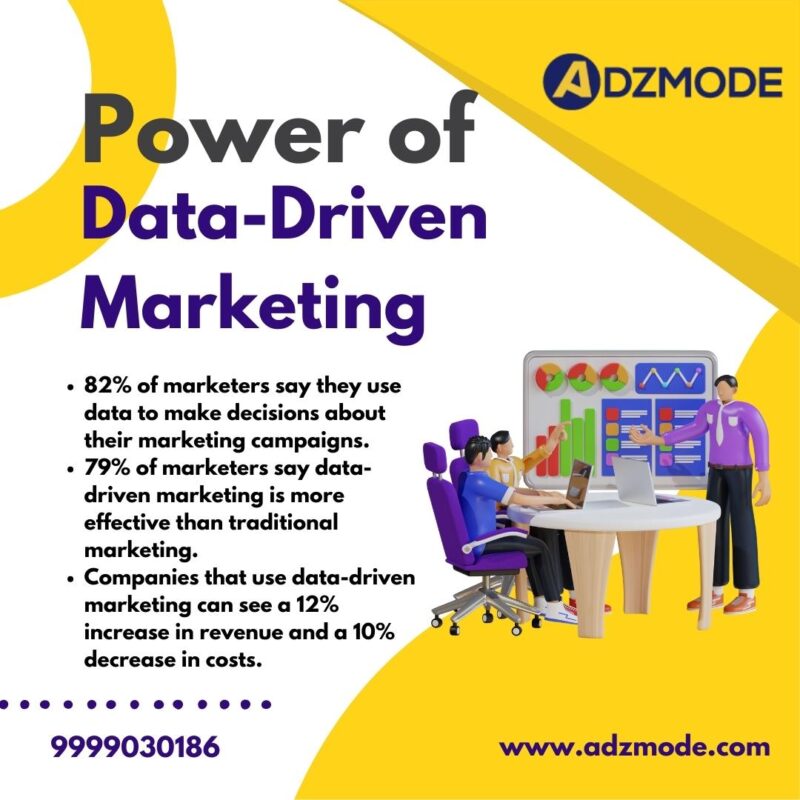
Customer Relationship Management (CRM) systems have become integral to modern businesses, particularly for marketing professionals seeking to streamline operations, nurture leads, and drive better customer engagement. With an array of CRM solutions available today, how to choose the right CRM for your marketing needs can be a challenging yet crucial decision. This guide aims to provide a comprehensive overview of what to consider when selecting the ideal CRM to elevate your marketing efforts.
What is a CRM, and Why Do You Need It for Marketing?
A CRM is a software platform designed to manage and analyze customer interactions and data throughout the customer lifecycle. By organizing and automating workflows, a CRM system helps businesses build stronger relationships with their clients, improve customer satisfaction, and ultimately drive growth. Here’s why a CRM is indispensable for marketing:
1. Centralized Data Management
A CRM consolidates all customer information—from contact details to interaction history—into a single database. This centralized repository allows your marketing team to make informed decisions and craft targeted campaigns.
2. Enhanced Lead Management
With features like lead scoring and tracking, a CRM helps marketers prioritize high-value leads and guide them effectively through the sales funnel.
3. Personalized Campaigns
Modern CRMs enable segmentation based on customer behavior, preferences, and demographics. This ensures that your marketing messages are tailored to specific audience segments, boosting engagement and conversion rates.
4. Automation and Efficiency
From email marketing to social media scheduling, CRMs automate repetitive tasks, allowing marketers to focus on strategy and creativity.
5. Measurable Results
With built-in analytics and reporting tools, a CRM provides insights into campaign performance, helping you refine your strategies and maximize ROI. From SEO to PPC, our digital marketing company in India crafts customized marketing strategies to elevate your brand visibility and revenue.

Understanding Your Marketing Needs
Before diving into the features and options, take a step back to evaluate your specific marketing requirements. This will ensure that the CRM you choose aligns with your goals and workflow. Here are some key questions to consider:
1. What Are Your Objectives?
- Are you focused on generating leads, nurturing relationships, or retaining existing customers?
- Do you need tools for email marketing, social media management, or event tracking?
2. Who Will Use the CRM?
- Will it be used exclusively by the marketing team, or will sales, customer service, and other departments also access it?
- How many users need access, and what are their specific roles?

3. What Challenges Are You Facing?
- Are you struggling with disorganized customer data?
- Do you need better integration between marketing and sales?
- Are you looking for ways to measure campaign performance more effectively?
- By clarifying your needs, you can create a roadmap for evaluating CRM options that address your unique challenges.
Visit: cost effective marketing strategies
Features to Look for in a CRM for Marketing
The right CRM should not only meet your current needs but also be scalable to support future growth. Here are some must-have features to look for:
1. Marketing Automation
- Automates repetitive tasks such as email campaigns lead scoring, and follow-up reminders.
- Includes tools for drip campaigns and customer journey mapping.
2. Customer Segmentation
- Allows you to group customers based on criteria like location, purchase history, or engagement level.
- Enables hyper-targeted campaigns.
3. Analytics and Reporting
- Offers real-time dashboards and detailed reports on campaign performance, customer behavior, and ROI.
- Helps identify trends and optimize marketing strategies.
4. Integration Capabilities
- Connects seamlessly with other tools such as email marketing platforms, social media schedulers, and e-commerce systems.
- Ensures a unified workflow across your marketing tech stack.
5. Lead Management
- Tracks lead through every stage of the customer journey.
- Assigns scores to leads based on their likelihood to convert, enabling better prioritization. Your business deserves more than a template. Let’s create a custom website that stands out from the competition by the most experienced web design company in India.

6. Customizable Workflows
- Adapts to your specific marketing processes.
- Offers the flexibility to create custom fields, reports, and automation rules.
7. Scalability
Accommodates your growing business needs, whether that means adding more users or integrating advanced features.
8. User-Friendly Interface
- Features an intuitive design that’s easy to navigate.
- Reduces the learning curve for your team.
Visit: business growth strategies for small businesses
Types of CRMs
CRMs come in different forms, each catering to specific business needs. Understanding these types can help you identify the best fit:
1. Operational CRM
- Focuses on automating and streamlining processes like lead generation, customer service, and marketing.
- Ideal for businesses looking to improve day-to-day operations.
2. Analytical CRM
- Specializes in analyzing customer data to provide actionable insights.
- Best suited for data-driven marketing strategies.
3. Collaborative CRM
- Emphasizes communication and collaboration among teams.
- Perfect for businesses aiming to enhance inter-departmental synergy.
Steps to Choose the Right CRM for Your Marketing Needs
Step 1: Define Your Goals
Outline your primary objectives. For example, are you aiming to increase lead conversions, improve customer retention, or enhance team collaboration?
Step 2: List Your Must-Have Features
Based on your goals, identify the key features your CRM must include. For instance, if personalization is a priority, look for robust segmentation tools.
Step 3: Research CRM Options
Explore popular CRM tools like HubSpot, Salesforce, Zoho CRM, and others. Pay attention to user reviews, case studies, and ratings.

Step 4: Test with Free Trials
Take advantage of free trials or demo versions to evaluate usability, features, and compatibility with your workflow.
Step 5: Evaluate Pricing
Compare pricing plans and ensure they align with your budget. Consider both initial costs and long-term expenses, such as upgrades or additional user licenses.
Step 6: Assess Integration and Support
Ensure the CRM integrates with your existing tools and offers reliable customer support. Check for training resources and a responsive help desk.
Step 7: Make an Informed Decision
After testing and evaluating, choose the CRM that best fits your marketing needs and goals.
Visit: tips for PPC advertising
Conclusion
Selecting the right CRM for your marketing needs is a strategic decision that can greatly impact your business’s success. By understanding your objectives, evaluating features, and testing different options, you can identify a CRM that aligns with your goals and enhances your marketing efforts.
Remember, the journey to finding how to choose the right CRM starts with understanding your unique needs. A well-chosen CRM is a tool and a partner in achieving marketing excellence.
Share Your Project Requirements With Us






